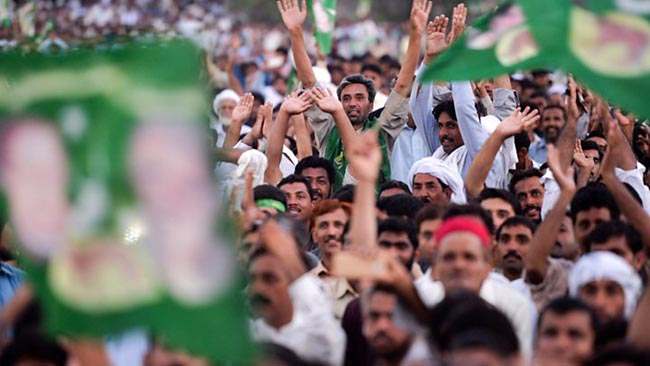Pakistan election 2018: As an estimated 105.95 million voters head to polls across the country on Wednesday, analysts say the future of Pakistan’s democracy is at stake
Islamabad, July 25:
Chaotic, dangerous and distasteful: This is how a newspaper described the campaign for Pakistan Assembly elections, with politicians and political parties sullying each other in every possible way. (Live updates)
As an estimated 105.95 million voters head to Pakistan polls across the country on Wednesday, analysts say the future of Pakistan’s democracy is at stake. Many have predicted a win for former cricketer turned anti-corruption crusader Imran Khan’s Pakistan Tehreek-e-Insaf (PTI) party on the back of unprecedented army support and interference in the electoral system. There are others who argue that the PTI, which has seen successive poor performance in the past elections, has finally come of age. “We have three options. An untried party supported by the military and two parties which have ruled one after the other and have both been accused of corruption,” said Zarar Khuhro, an analyst with a local TV channel, referring to PTI, Pakistan Muslim League (Nawaz) and the Pakistan Peoples Party.
The level of army interference not just in the general elections of Pakistan but in many spheres of public life is unprecedented. The press has been muzzled. The judiciary has been made compliant. Politicians have been persuaded to stand one way or the other. Religious extremists and terrorists have seen their name taken off a government watch-list and allowed to contest election. Academics have been ordered to teach only pro-Pakistani texts.
Many insist that these are possibly the first steps to introduction of more rigorous pro-Islamic order in the country. Both Imran Khan and his wife Bushra Maneka insist on bringing more changes to make the people more Islamic. “He will take us back by several decades,” said analyst Ghazi Salahuddin.
As things stand, the army control’s Pakistan’s foreign policy as well as its policy on law and order is firm. No decision can be taken on either of the two subjects without stepping on someone’s toes. Over the past two years the army has made inroads into areas which were usually left alone, like academia and water and power policy. “It is a fight for civilian supremacy,” said journalist Shazeb Gillian.
Despite the circumstances, many are hopeful of better things to come. The silver lining, if any, is that the elections are taking place on time. What is encouraging, say many, is that Pakistanis are gradually getting used to voting and to civilian governments. “We are hopeful that if this system continues the way it is going, it will eventually bring forward the people who will be able to deliver,” said media analyst Jawaid Iqbal.
Polling will close by 6pm and it is expected that unofficial results will start pouring in by the early hours of Thursday. Earlier, electoral campaigns and rallies ended on Monday night. Vote counting is likely to stretch into the early-morning hours. There are 270 seats parliamentary seats out of 342 up for grabs, with 60 seats reserved for women and 10 for minorities. A party or coalition needs 136 seats to form government, reported Bloomberg News.
Courtesy: Hindustan Times




